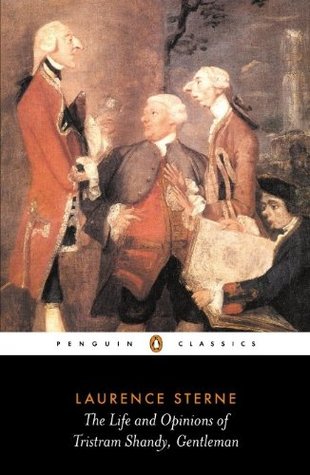More on this book
Community
Kindle Notes & Highlights
Read between
May 28 - October 3, 2025
‘Do not despair, one of the thieves was saved; do not presume, one of the thieves was damned.’
‘Ridiculum acri / Fortius et melius magnas plerumque secat Res’ (Ridicule often cuts hard knots more forcefully and effectively than gravity).
argued the matter with her like a christian,—like a heathen,—like a husband,—like a father,—like a patriot,—like a man:—My mother answered every thing only like a woman; which was a little hard upon her;—for as she could not assume and fight it out behind such a variety of characters,—’twas no fair match;—’twas seven to one.—What
Andrew was something like a negative quantity in Algebra with him;---’twas worse, he said, than nothing.---
Digressions, incontestably, are the sun-shine;——they are the life, the soul of reading;---take them out of this book for instance,--you might as well take the book along with them;—one cold eternal winter would reign in every page of it; restore them to the writer;-----he steps forth like a bridegroom,3—bids
to drop my metaphor, (for there is nothing more dishonest in an historian, than the use of one,)——in
beg and beseech you, (in case you will do nothing better for us) that where-ever, in any part of your dominions it so falls out, that three several roads meet in one point, as they have done just here,—that at least you set up a guide-post,
nor (according to Erasmus) 3 shall he speak to any one in making water,—nor shall he point to carrion or excrement.——Now
when a soldier gets time to pray,—he prays as heartily as a parson,—though not with all his fuss and hypocrisy.——Thou shouldst not have said that, Trim, said my uncle Toby,—for God only knows who is a hypocrite, and who is not:——At
’tis the fortune of war which has put the whip into our hands now——where it may be hereafter, heaven knows!——but be it where it will, the brave, Trim! will not use it unkindly.
Locke had undercut Filmer’s interpretation of the fifth commandment as endorsing absolute patriarchal authority by reminding him that the commandment says ‘honour thy father and thy mother’.
slut: In Sterne’s day, an affectionate word.


